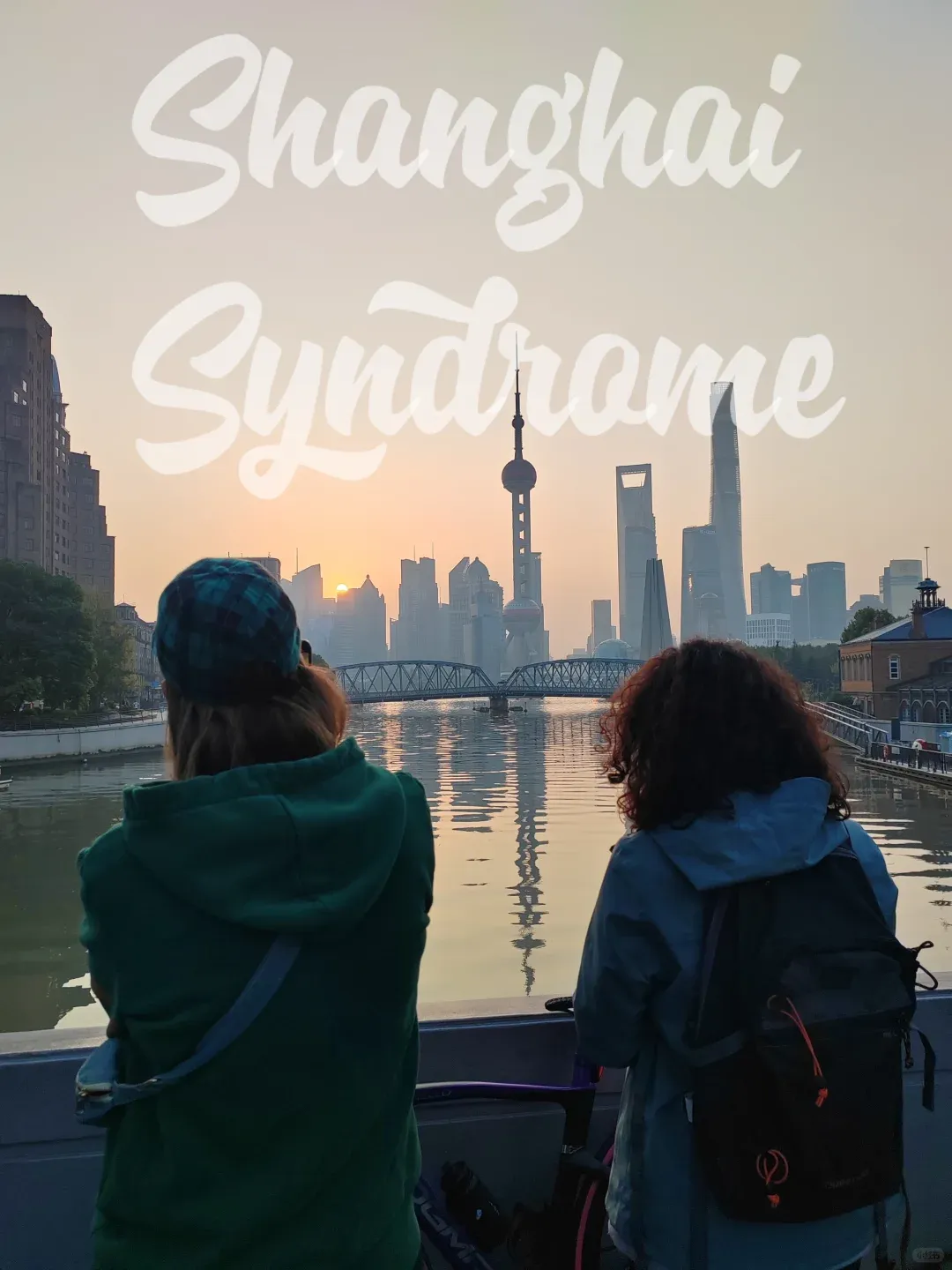The 'Shanghai Syndrome': Every Foreign Tourist's WTF Moment
-

Hello everyone! My name is Rokae Xi, a Frenchman living in Shanghai for nearly ten years. I absolutely love leading friends from all over the world to explore this vibrant city, sharing with them the stories and essence of its rich culture. Today I want to talk about an interesting topic, which I call "Shanghai Syndrome."
What is the "Shanghai Syndrome"?
At first, let me clarify that this term was my own playful invention, not a medically recognized condition, so don't take it too seriously.
It was inspired as a contrasting concept to the famed "Paris Syndrome."
A little background: What exactly is "Paris Syndrome"?
Simply put, it’s a scenario where some travelers, particularly Japanese tourists, have unrealistically positive and romantic expectations about Paris being like in fairy tales.
However, what they experience upon arrival can be quite different. Paris may be less clean than imagined, or cultural differences and communication barriers may make them feel somewhat out of place.
Then they may suffer from a psychological dissonance, experiencing unpleasant reactions like nausea, insomnia, increased anxiety—some even feel deceived.
It was first described by a Japanese doctor as early as 1986.Note: Not everyone experiences this symptom; it can happen if your expectations of Paris are too idealistic, and you may feel somewhat disappointed.
Contrarily, what I call “Shanghai Syndrome” works in the opposite direction:
It’s a phenomenon I’ve observed: many foreign friends have heard mostly negative notions about Shanghai before they come—like it’s overly crowded, with poor air quality.
However, once they’re here, they're often amazed at how different reality is from their expectations:
- They find out that Shanghai is quite orderly, with clean streets and well-planned greening.
- People are friendly and welcoming, and the streets are filled with new-energy vehicles.
- These positive surprises completely shatter their preconceived beliefs.
- As a result, not only do they fall in love with Shanghai, but their views toward China as a whole become more positive.
This sense of pleasant surprise and newfound appreciation, due to reality surpassing their preconceptions, is what I refer to as the "Shanghai Syndrome".
To sum up…
The use of the term "syndrome" might give off a not-so-positive feel, similar to the connotation of illness.
If one aims to convey such positive and illuminating sentiments, calling it the “Shanghai Effect” or "Shanghai Awakening" might be better suited to reflect that profound transformation from cautiousness to admiration!
-
It's also possible that this led to a psychological imbalance, a feeling of lost superiority, and consequently...
-
Indeed, some people might react that way.
-
I just got back from a trip to Europe. At a youth hostel in Barcelona, I met a Turkish girl. She asked me, 'Have you been to Paris?' I said I hadn't yet, and she replied, 'Don't go.'
-
You met someone suffering from Paris Syndrome.
-
Ahhh, seeing this, I'd like to add another 'cultural phenomenon' named after a city. 'Seoul Sickness' is a term coined by K-pop fans (no offense intended). It mainly refers to a kind of withdrawal-like symptom experienced after attending a concert in Seoul, characterized by intense longing, a reluctance to leave, constantly reminiscing about the experience, and then starting to plan the next trip to Seoul. However, it seems the Korean term for 'Seoul Sickness' (서울병) doesn't quite have this meaning; in Korean, it's more akin to a 'big city syndrome' (though I might be mistaken, please feel free to add your thoughts).
-
This is the first time I've heard of 'Seoul Sickness'.
-
If they have such negative views about Shanghai, why would they even come here for tourism? It doesn't make sense.
-
Usually, people who visit despite having negative opinions are either here to see family or friends, or they're on a business trip and have some spare time for sightseeing after work. If they're purely tourists, their negative views probably aren't that strong.
-
Then why not call it 'Shanghai Remedy'?
-
That could work too.
-
Paris Syndrome, it's so true! I definitely felt that stark contrast between expectations and reality on my first trip to Paris. Thankfully, the city's architecture provided some consolation. Similarly, in my travels a few years before the pandemic, the place where 'Paris Syndrome' hit me hardest was Helsinki, Finland!
-
Hopefully, Paris Syndrome can gradually be overcome.
-
And then there's 'Bangkok Sickness' – that one's even worse!
-
I think I might have experienced that.
-
I think I saw you taking people to a xiaolongbao restaurant.
-
The one on Huanghe Road?
-
Borrowing the OP's (Original Poster's) term 'syndrome,' let me share a 'China Syndrome' experienced by a German friend on his trip to China before 2004:
- Before his trip, friends advised him to pack medication, warning that the environment would be dirty and the food unsafe. As it turned out, he traveled through most of China without needing any of it.
- In a remote and vast area in Xinjiang, far from any city, he suddenly heard his phone ring – a call from his family, a sound he hadn't heard for a long time. He was both surprised and delighted, and immediately shared it with his family over the phone. Back then, many areas in Germany still lacked mobile coverage, yet even in such a remote part of China, there was a signal!
- When they came to Shanghai, we took their group on the German-engineered Maglev train. They were absolutely astounded, their jaws practically dropped! They couldn't believe China had commercialized it while Germany hadn't. It was their first time experiencing the speed, smoothness, and comfort of the Maglev.
He joked he had to take this 'China Syndrome' back to 'infect' his friends. And just like that, more than twenty years have passed.
-
The Shanghai Revelation.
-
That's a good one.
